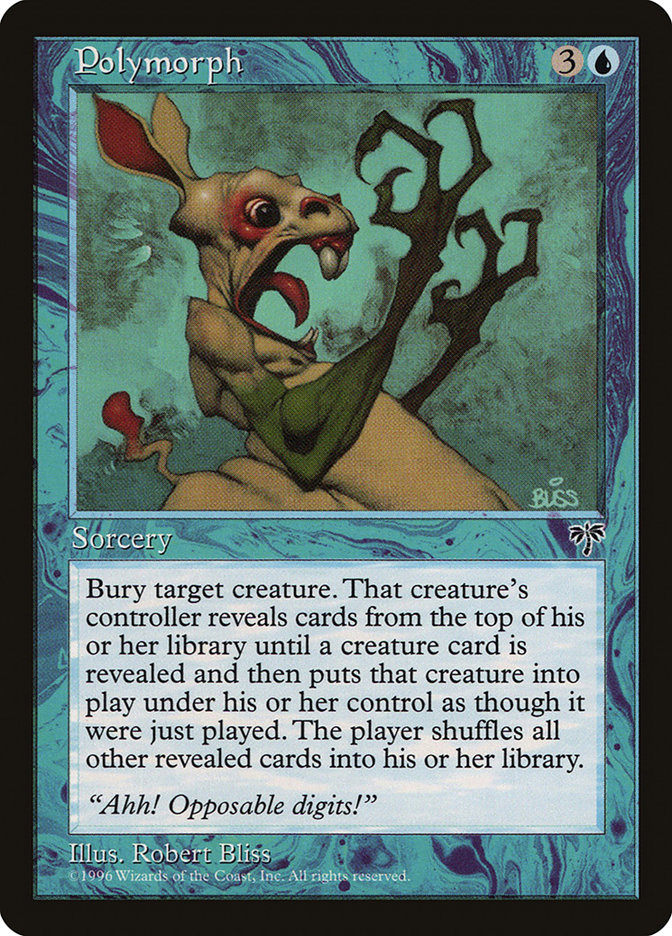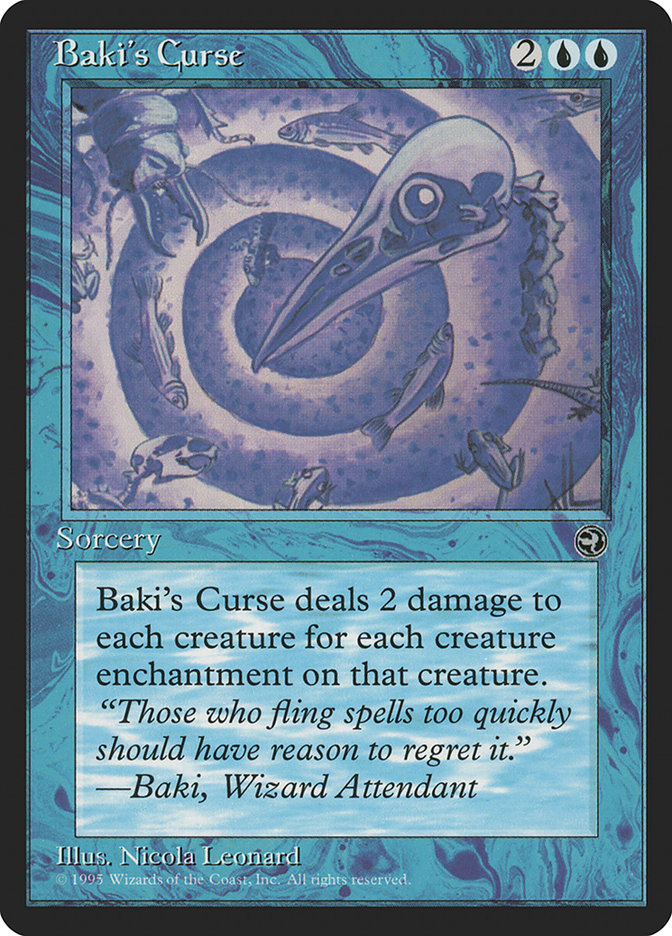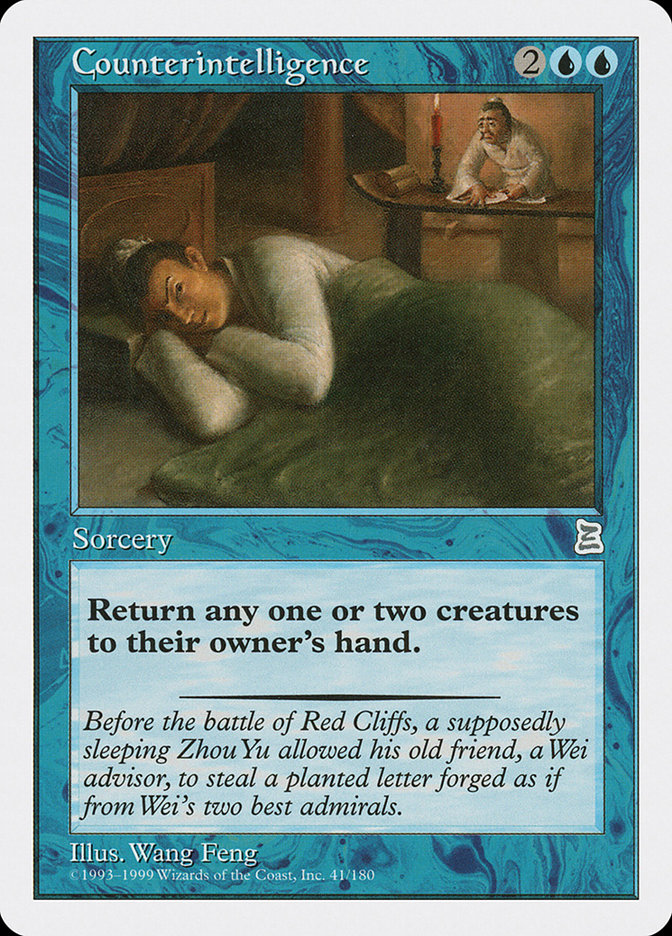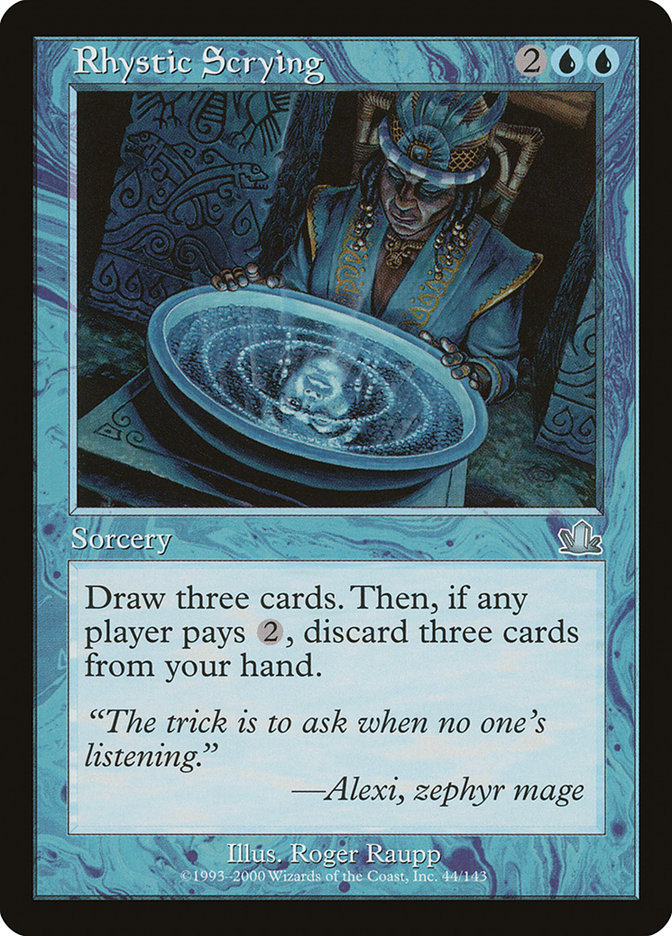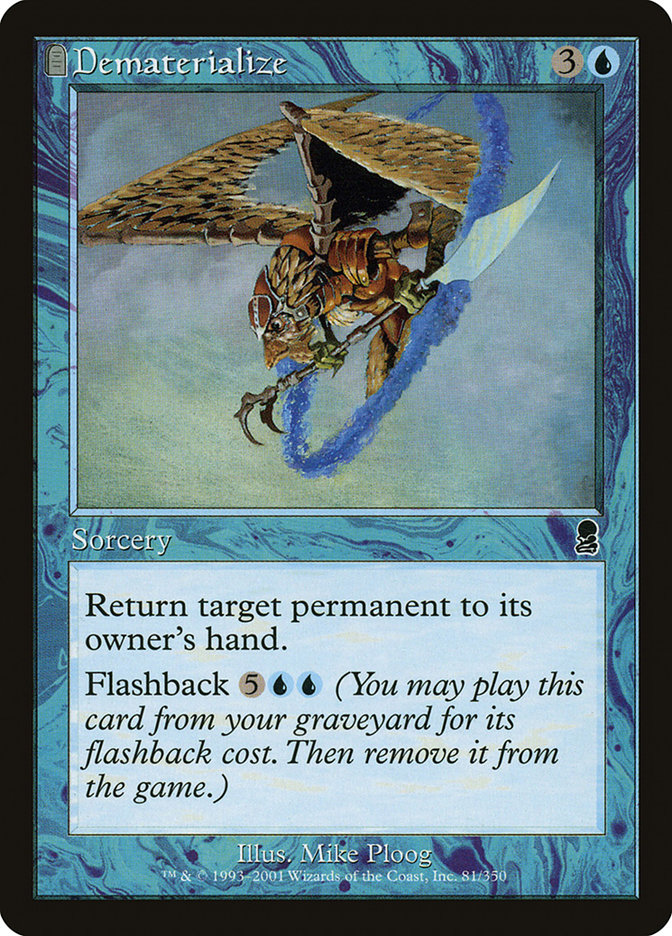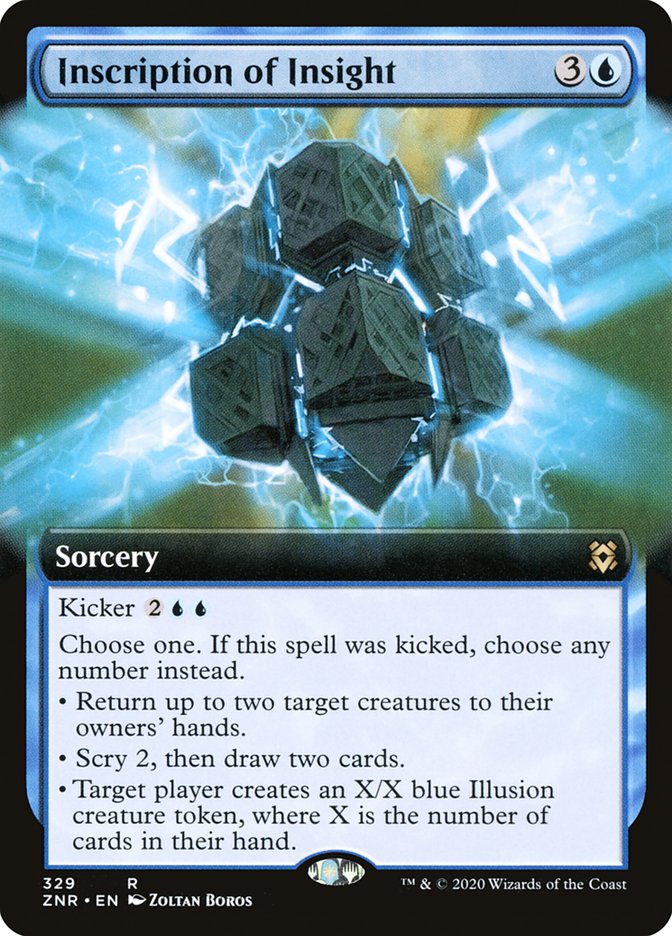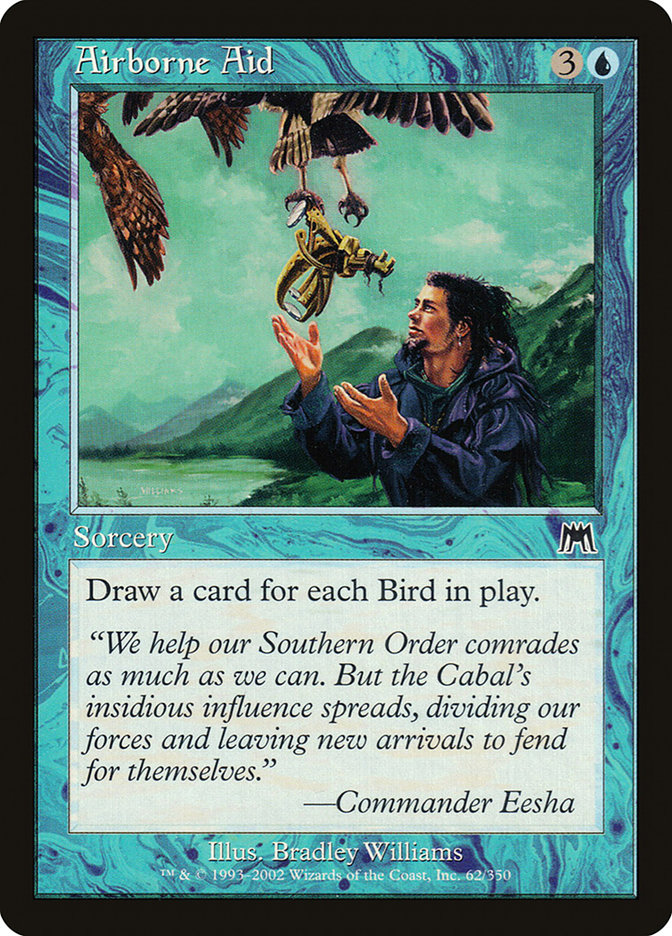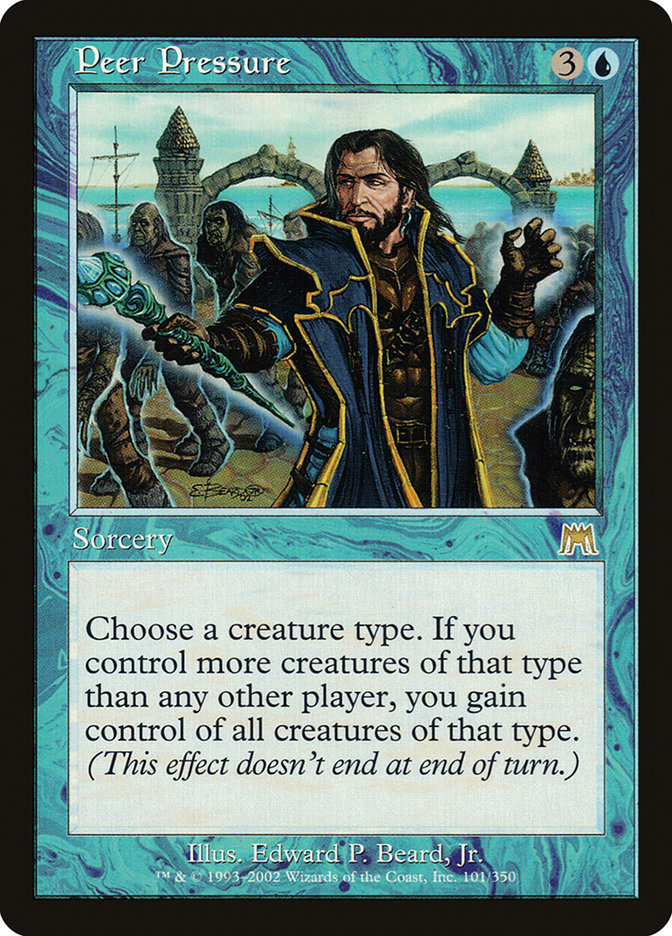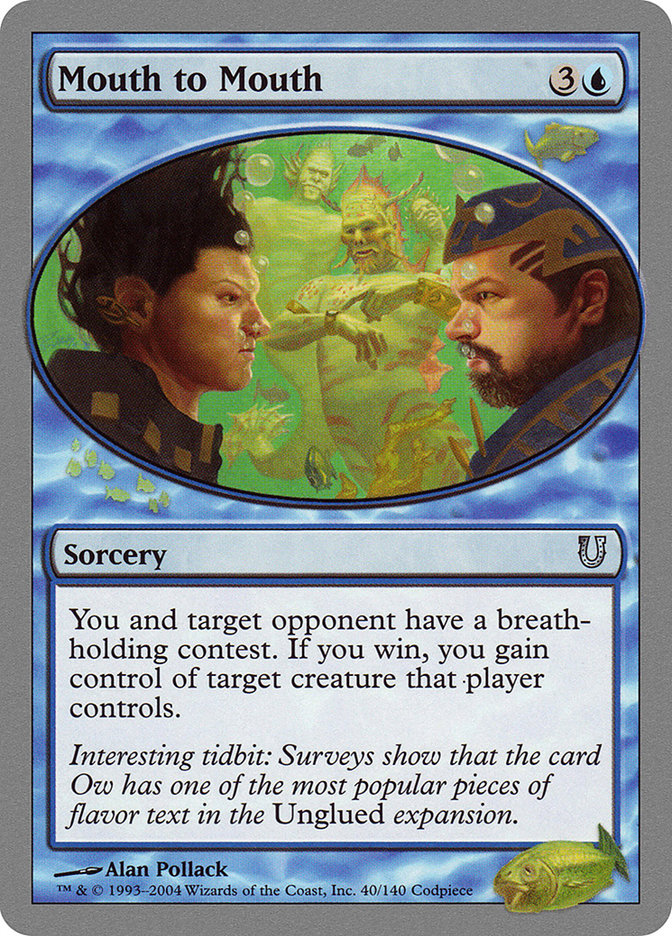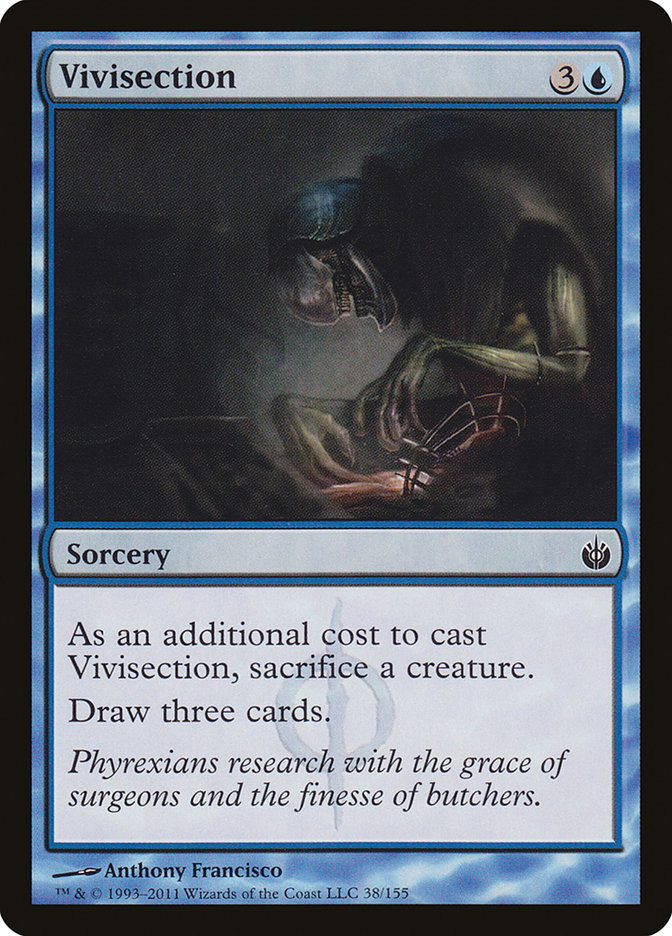Polymorph MTG Card
| Card sets | Released in 6 setsSee all |
| Mana cost | |
| Converted mana cost | 4 |
| Rarity | Rare |
| Type | Sorcery |
Text of card
Bury target creature. That creature's controller reveals cards from the top of his or her library until a creature card is revealed and then puts that creature into play under his or her control as though it were just played. The player shuffles all other revealed cards into his or her library.
"Ahh! Opposable digits!"
Cards like Polymorph
Polymorph is a distinctive card in Magic: The Gathering for its creature transformation ability. Its nearest relatives include cards like Mass Polymorph and Transmogrify. Mass Polymorph escalates the transformation effect by exiling and then transforming all creatures you control, instead of just one, adding a layer of mass surprise to your strategy. Transmogrify, meanwhile, shares Polymorph’s individual creature focus but requires red mana, thus fitting more comfortably into red-centric decks.
Divergent Transformations is another card that operates under a similar principle, though with a multiplayer twist, as it can affect two creatures. Its unpredictability can be both an opportunity and a risk depending on the board state. However, unlike Polymorph or Transmogrify, Divergent Transformations has the potential for greater control over the outcome since it depends on the remaining creatures in the deck.
While exploring these alternatives, it becomes clear Polymorph stands out for its potential to cheat out a single high-cost creature early in the game. This particular trait provides a unique tactical advantage, situating Polymorph as a formidable option for creature-based strategy decks.
Cards similar to Polymorph by color, type and mana cost
Card Pros
Card Advantage: Polymorph can drastically alter the battlefield by transforming a minor creature into a potentially game-ending threat. By doing so, you outvalue your opponent’s removal spells that were meant for lower-value creatures, gaining significant card advantage.
Resource Acceleration: This spell doesn’t directly ramp your mana, but it effectively bypasses the mana cost of larger creatures. In essence, you’re accelerating your resources by getting a more valuable creature on the field without paying its mana cost.
Instant Speed: While Polymorph is a sorcery, its impact can be considered similar to an instant speed effect due to its transformative nature. It allows you to react promptly to the state of the game by changing a chump blocker or a token creature into a substantial threat as immediately as the current turn allows.
Card Cons
Discard Requirement: Casting Polymorph demands that you sacrifice a creature, a substantial price that can set you back if you’re struggling to maintain a board presence. This trade-off can be particularly risky if the resulting creature from your library doesn’t offer an immediate impact or if you’re already behind your opponent in terms of board state.
Specific Mana Cost: This iconic blue spell requires both generic and blue mana for casting. Its reliance on blue mana contributes to its alignment with specific deck archetypes, potentially limiting its integration in multi-colored or colorless decks that can’t reliably provide the necessary blue mana sources.
Comparatively High Mana Cost: With a cost of four mana to cast, Polymorph isn’t always the fastest answer in a game where tempo can be everything. It competes with other four-mana spells that may provide more immediate or guaranteed value. Players must assess whether the potential upside of summoning a powerful creature justifies the relatively steep mana investment and inherent unpredictability.
Reasons to Include in Your Collection
Versatility: Polymorph has a unique ability in the game that can be leveraged in creative ways depending on the deck. Its knack for morphing creatures into potentially game-changing powerhouses allows it to fit into various strategic plans.
Combo Potential: With just one cast, Polymorph can catalyze combos by transforming an expendable creature into a more formidable one from your library. This transformative power can unexpectedly shift the tide of a game.
Meta-Relevance: In a metagame dense with creature-based strategies, Polymorph can be an ace up your sleeve. It can bypass layers of defense by converting a benign presence into a dominant force, adjusting to the ebb and flow of the current MTG environment.
How to beat
The Polymorph card has become a tool for many Magic: The Gathering enthusiasts who enjoy unpredictability and surprise elements in their deck. Its power to transform any creature into a potential game-winning behemoth from your deck cannot be understated. Yet, there are strategies to counteract this spell and maintain control over the game. One effective tactic is to limit the number of creatures on your opponent’s battlefield, lessening the chances for a successful Polymorph. Removal spells are a key asset here.
Counterspells are also an ace up your sleeve when dueling against Polymorph strategies. Be vigilant and keep mana available to disrupt the casting of this transformative spell. Furthermore, having instant-speed removal allows you to respond to the newly Polymorphed creature, neutralizing the threat before it can dominate the battlefield. Another angle is to utilize graveyard disruption techniques, which can hinder your opponent’s ability to use their graveyard as a reliable resource for Polymorph targets.
Lastly, being aware of the deck you’re playing against and predicting the potential creatures that might be summoned helps you prepare the right answers in your sideboard. In conclusion, countering Polymorph in Magic: The Gathering requires a blend of preemptive controls, reactive solutions, and strategic foresight.
BurnMana Recommendations
Welcome, fellow aficionado of the strategic depth and surprise tactics of MTG. Embracing the transformative power of Polymorph could be a pivotal move in your deck-building and gameplay. While mastering this distinctive card and leveraging its pros can significantly advance your board state, a careful consideration of its cons is equally essential. Are you eager to integrate Polymorph into your arsenal and ready to evolve your MTG experience? Our trove of insights awaits. Amplify your knowledge of synergy, counterplays, and deck optimization — join our community of enthusiasts and experts as we chart our course to victory.
Where to buy
If you're looking to purchase Polymorph MTG card by a specific set like Mirage and Classic Sixth Edition, there are several reliable options to consider. One of the primary sources is your local game store, where you can often find booster packs, individual cards, and preconstructed decks from current and some past sets. They often offer the added benefit of a community where you can trade with other players.
For a broader inventory, particularly of older sets, online marketplaces like TCGPlayer, Card Kingdom and Card Market offer extensive selections and allow you to search for cards from specific sets. Larger e-commerce platforms like eBay and Amazon also have listings from various sellers, which can be a good place to look for sealed product and rare finds.
Additionally, Magic’s official site often has a store locator and retailer lists for finding Wizards of the Coast licensed products. Remember to check for authenticity and the condition of the cards when purchasing, especially from individual sellers on larger marketplaces.
Below is a list of some store websites where you can buy the Polymorph and other MTG cards:
 BUY NOW
BUY NOW BurnMana is an official partner of TCGPlayer
- eBay
- Card Kingdom
- Card Market
- Star City Games
- CoolStuffInc
- MTG Mint Card
- Hareruya
- Troll and Toad
- ABU Games
- Card Hoarder Magic Online
- MTGO Traders Magic Online
See MTG Products
Printings
The Polymorph Magic the Gathering card was released in 5 different sets between 1996-10-08 and 2009-07-17. Illustrated by Robert Bliss.
| # | Released | Name | Code | Symbol | Number | Frame | Layout | Border | Artist |
|---|---|---|---|---|---|---|---|---|---|
| 1 | 1996-10-08 | Mirage | MIR | 82 | 1997 | Normal | Black | Robert Bliss | |
| 2 | 1999-04-21 | Classic Sixth Edition | 6ED | 86 | 1997 | Normal | White | Robert Bliss | |
| 3 | 2005-07-29 | Ninth Edition | 9ED | 90 | 2003 | Normal | White | Robert Bliss | |
| 4 | 2005-07-29 | Ninth Edition | 9ED | 90★ | 2003 | Normal | Black | Robert Bliss | |
| 5 | 2009-07-17 | Magic 2010 | M10 | 67 | 2003 | Normal | Black | Robert Bliss | |
| 6 | The List | PLST | M10-67 | 2003 | Normal | Black | Robert Bliss |
Legalities
Magic the Gathering formats where Polymorph has restrictions
| Format | Legality |
|---|---|
| Commander | Legal |
| Legacy | Legal |
| Modern | Legal |
| Oathbreaker | Legal |
| Premodern | Legal |
| Vintage | Legal |
| Duel | Banned |
| Predh | Legal |
| Penny | Legal |
Rules and information
The reference guide for Magic: The Gathering Polymorph card rulings provides official rulings, any errata issued, as well as a record of all the functional modifications that have occurred.
| Date | Text |
|---|---|
| 2004-10-04 | If there are no creatures in the player’s library, then the target creature is still destroyed, you see all the cards in that player’s library, and then they shuffle and continue play. |
| 2009-10-01 | A “creature card” is any card with the type creature, even if it has other types such as artifact, enchantment, or land. Older cards of type summon are also creature cards. |
| 2009-10-01 | If the targeted creature is an illegal target by the time Polymorph would resolve, the entire spell doesn’t resolve. Nothing else happens. |
| 2009-10-01 | If there are no creature cards in the player’s library, all the cards in that library are revealed, then the library is shuffled. (The targeted creature remains destroyed.) |
| 2013-07-01 | If the targeted creature has indestructible, it’s still a legal target — it just isn’t destroyed. The rest of Polymorph’s effect happens as normal. |
